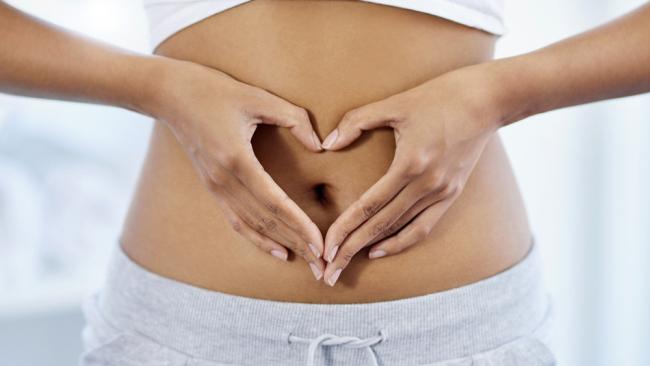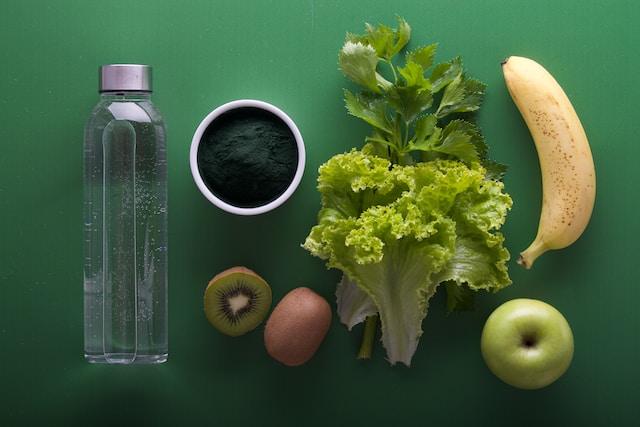Your cart is currently empty!

The Gut-Brain Connection
The Gut-Brain Connection – Unveiling the Power and Importance of Gut Health
It might surprise you to know that our gut is a primary source for health and well-being. All disease starts in our gut, whether it’s a common cold or cancer. Our gut is also considered our “second brain.”
Here are some key reasons why gut health is so important:
1) Digestion and Nutrient Absorption
The gut, specifically the intestines, is responsible for breaking down food, absorbing nutrients, and eliminating waste. A healthy gut ensures efficient digestion and absorption of essential nutrients, such as vitamins, minerals, and macronutrients, which are crucial for overall health and vitality.
Fact: We should be eliminating waste after every meal. This does not always occur immediately after a meal. It may be 1-2 hours after you’ve eaten.
2) Immune System Function
Approximately 70-80% of our immune system resides in the gut. A healthy gut supports a robust immune response, defending against harmful pathogens, viruses, and bacteria. It helps maintain the delicate balance between protecting against infections and allergies while avoiding autoimmune reactions.
3) Mental Health and Mood Regulation
The gut is often referred to as our “second brain” due to the bidirectional communication between the gut and the central nervous system. The gut produces neurotransmitters like serotonin, which impacts mood, sleep, and overall mental well-being. A healthy gut microbiome contributes to optimal brain function and may reduce the risk of mental disorders, including depression, anxiety, and cognitive decline.
4) Inflammation and Disease Prevention
An imbalanced gut microbiome can lead to chronic inflammation, which has been linked to various diseases such as obesity, diabetes, cardiovascular conditions, autoimmune disorders, and certain cancers. Maintaining a healthy gut helps reduce inflammation, supporting disease prevention and overall longevity.
5) Digestive Disorders and Gut-Related Conditions
Imbalances in gut bacteria, such as an overgrowth of harmful bacteria or a lack of beneficial bacteria, can contribute to digestive disorders like irritable bowel syndrome (IBS), inflammatory bowel disease (IBD), and leaky gut syndrome. Optimizing gut health through dietary and lifestyle interventions can alleviate symptoms and promote gut healing.
6) Nutrient Production and Metabolism
The gut microbiota assists in producing certain vitamins, such as vitamin K and some B vitamins, which are essential for various bodily functions. Additionally, a healthy gut microbiome helps regulate metabolism, influence appetite, and contribute to weight management.
7) Skin Health
A gut imbalance contributes to skin conditions such as acne, eczema, and psoriasis, and can contribute to systemic inflammation, triggering or exacerbating skin issues. Nurturing a healthy gut microbiome can have positive effects on skin health and appearance.
Gut microbiome is affected by the following:
- Stress
- Lack of sleep
- Lack of physical activity
- Eating excessive amounts of processed foods
- Smoking
- Drinking excessive alcohol
- Taking antibiotics
- Our environment
- Age
- Whether we were breast-fed or bottle-fed as a baby
Chronic stress is a silent killer and is one of the top contributors to disease and digestive issues.
My gut health was severely compromised, from chronic stress and burnout, after years in a toxic work environment. I was 65 pounds overweight and taking multiple medications to manage migraines and digestive issues. I averaged four hours sleep per night. Leaving my toxic job eliminated the primary source of my stress, which dramatically improved my gut health and overall well-being.
Signs of an unhealthy gut include:
- Digestive symptoms including gas, bloating, constipation, diarrhea, and heartburn
- Sleep disturbances and fatigue
- High stress and anxiety
- Compromised immune system, including frequent illness, such as the common cold
If you suspect a gut imbalance, talk to your primary doctor or Gastroenterologist. If your condition is severe, you may require medication and/or a special diet to restore the health of your digestive system.
Non-medical ways to improve gut health include:
- Eat a high-fiber diet
- Eat fresh, wholefoods including fruits, vegetables, legumes, wholegrains, and nuts (mostly plant based and a wide variety).
- Eat foods rich in polyphenols
- Herbs and spices
- Colorful fruits and vegetables
- Nuts and seeds
- Green and black tea
- Coffee
- Cocoa and dark chocolate
- Eat fermented food
- Yogurt
- Kimchi
- Sauerkraut
- Kefir
- Kombucha
- Tempeh
- Be physically active
- Reduce stress
- Limit processed foods, added sugar, salt, unhealthy fats, and additives (artificial ingredients)
- Drink 64 ounces or more of water per day
- Eat slowly
- If pregnant, breastfeed for at least 6 months
- Take a daily probiotic. Consult your doctor first.
I am often asked what are the best probiotics for gut health. The following article provides excellent information on what to look for when choosing a probiotic: Best Probiotics for Gut Health of 2023 – A Buyer’s Guide
There are four key characteristics of high-quality probiotics:
- High count of CFUs (Colony Forming Units)
- Pure ingredients
- Naturally sourced strains
- Delayed-release
In closing, I’d like to bust some myths regarding gut health.
Myth: Regular colon cleansing improves gut health
Although colon cleansing can eliminate certain toxins from your body, there is not enough substantiated evidence to support that regular colon cleansing is necessary for gut health. In fact, in some cases, colon cleansing can create more imbalances by irritating the gut and removing healthy bacteria.
Myth: Individual foods or particular products can rapidly heal an unbalanced gut microbiome
There is no quick fix for improving gut health. If your gut is severely compromised, it can take months to heal. The best course of action is to consult with your GP or Gastroenterologist first, to eliminate the possibility of more serious health problems, and follow the guidelines discussed in this blog post.
Cheers to your gut health!
For additional details or to schedule a complimentary session to understand how to improve your gut health to lead a more balanced, happier and fulfilled life, please email me at coach@maximizeu.life
#healthygut #healthandwellness #wellnesscoach #mentalfitness



Leave a Reply